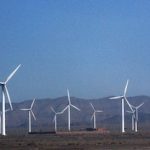“Nationally Determined Contributions” (NDCs) are a nation’s published plans to reduce emissions and adapt to the impacts of climate change. Natalie Jones at the IISD, writing for Carbon Brief, summarises her co-authored study that reviews the fossil fuel production element of those NDCs. Nations are obliged to update their NDCs every five years, to give more detail. That added detail is a cause for concern in the latest round of NDCs: there is an … [Read more...]
Europe’s long-term energy security: do not become dependent on “green” Russia’s future LNG and Hydrogen exports
It’s not enough for Europe to cut Russian energy imports without a plan to make the change endure, says Leslie Palti-Guzman writing for the Atlantic Council Global Energy Center. Boycotts and divestments usually have expiry dates. What’s more, Russia will be proactive in driving its export capabilities to make them commercially attractive in the post-war world. Russia plans expanding LNG shipments from its Yamal Peninsular, as well as getting … [Read more...]
Poland’s PGE should accelerate its coal diversification plans
Poland’s biggest utility, PGE, should accelerate plans to diversify away from coal, as surging carbon prices underscore risks gathering around its present PLN 21 billion ($5.6 billion) coal power investment programme, write Gerard Wynn of IEEFA (Institute for Energy Economics and Financial Analysis) and Paolo Coghe of the Paris-based independent consultancy Acousmatics. Courtesy Energy and Carbon Blog. … [Read more...]
Why are German coal workers so powerful, when there are so few?
With Germany slipping from its position as a climate leader, an industry with just 20,000 jobs is dictating policy to the federal government. How is this possible, asks Felix Heilmann. Courtesy Climate Home News. … [Read more...]
No plans to phase out coal in Romania, despite diverse energy mix
Coal accounts for about a quarter of energy produced in Romania, which is a net electricity exporter. Compared to countries like Poland where coal dependency is much higher, discussions about a coal phaseout could be more advanced. Why aren’t they? asks Claudia Ciobanu. Article courtesy of Just Transition. … [Read more...]
Trying to make sense of the RWE/EON utility deal…
There is economic and financial market rationale behind the recent deal between E.ON. and RWE, writes financial energy specialist Gerard Reid. From a strategic perspective, however, the decision will impact customers negatively, and will be bad for the long-term sustainability of both companies, Reid argues. Courtesy Energy and Carbon blog. … [Read more...]
Ukraine’s power sector is set for a major transition
As the pillars of Ukraine’s power sector – coal and nuclear – are shaking, the country is on the point of a major energy transformation, writes Oleg Savitsky, climate and energy policy expert and journalist. But some crucial steps still need to be taken to make it possible. … [Read more...]
Poland’s largest utility, PGE, faced with growing risks from transition
The financial stability of PGE, Poland’s largest utility, could be undermined if it sticks with its current fossil fuel-heavy generation profile, writes Gerard Wynn. In a new report for the Institute for Energy Economics and Financial Analysis (IEEFA), Wynn concludes that the company could be hit hard by increasing carbon prices and tougher air pollution rules if it does not shift away from coal. … [Read more...]
How gas and oil companies are starting to look like the Yellow Pages (remember those?)
The parallels between what happened to the Yellow Pages business and what’s happening to the fossil fuel industry today are striking, writes Kathy Hipple, financial analyst at IEEFA (Institute for Energy Economics and Financial Analysis). The oil and gas industry may not collapse as rapidly as the Yellow Pages did, it will go the way of the shrinking coal industry unless it learns from the failure of the Yellow Pages to adapt. Courtesy: IEEFA … [Read more...]
Uneconomic coal could be squeezed out of European Union power markets by 2030
Coal’s time is running out in Europe: deteriorating economics and stronger climate policies will soon make coal uneconomic, writes Silvio Marcacci of think tank Energy Innovation. Many European countries have already set an end date for coal power, utilities and investors are shifting away from it. The question is not if coal will lose, but when, and how well-managed its exit will be. … [Read more...]
Why there is so much aggressive bidding at renewables auctions – and what the risks are
Renewable energy auctions have seen very low prices in many parts of the world. Why do auctions seem to be so effective in driving down costs – and what are the risks? Ana Amazo-Blanco, Silvana Tiedemann of Navigant[1], and Dr. Stephen Tay and Monika Bieri of SERIS looked at a solar PV rooftop auction in Singapore and an offshore wind auction in Germany to discover the key factors behind the bids and suggest how project developers can make sure … [Read more...]
A common goal for all sustainability advocates
Nothing is better for fossil fuel interests than current government policies supporting wind, solar and electric cars, writes independent researcher Schalk Cloete. These green technologies won't reduce fossil fuel consumption sufficiently for a long time to come, so the fossil fuel sector will be able to survive that much longer. In the third and last part of a series on green technology-forcing, Cloete calls on all sustainability advocates to … [Read more...]
Six reasons to be more optimistic about climate change than five years ago
There are reasons to be more optimistic about climate change now than five years ago, writes climate change economist Adam Whitmore. Several trends, including emissions reduction, carbon pricing or investment into low-carbon technologies, make it appear that the worst of the risks of climate change can be avoided. Courtesy Whitmore's blog On Climate Change Policy … [Read more...]
The dangers of green technology-forcing
Current technology-forcing policies imply that wind and solar power, combined with battery electric vehicles, represent our only viable energy future, observes independent researcher Schalk Cloete. Given the fundamental limitations of these technologies, this is a very dangerous notion, he argues. A shift to technology-neutral policies is needed, especially in developing nations. … [Read more...]
Gas Geoeconomics in Europe: make Russia a “normal” gas supplier again
To protect Europe from Russian gas coercion, the U.S. should take the unorthodox step of investing in European gas infrastructure, write Gabriel Collins and Anna Mikulska of the Baker Institute’s Center for Energy Studies. Such a "geoeconomics-based strategy" would help blunt and deflect the Kremlin’s gas wedge. … [Read more...]
- 1
- 2
- 3
- …
- 11
- Next Page »
















